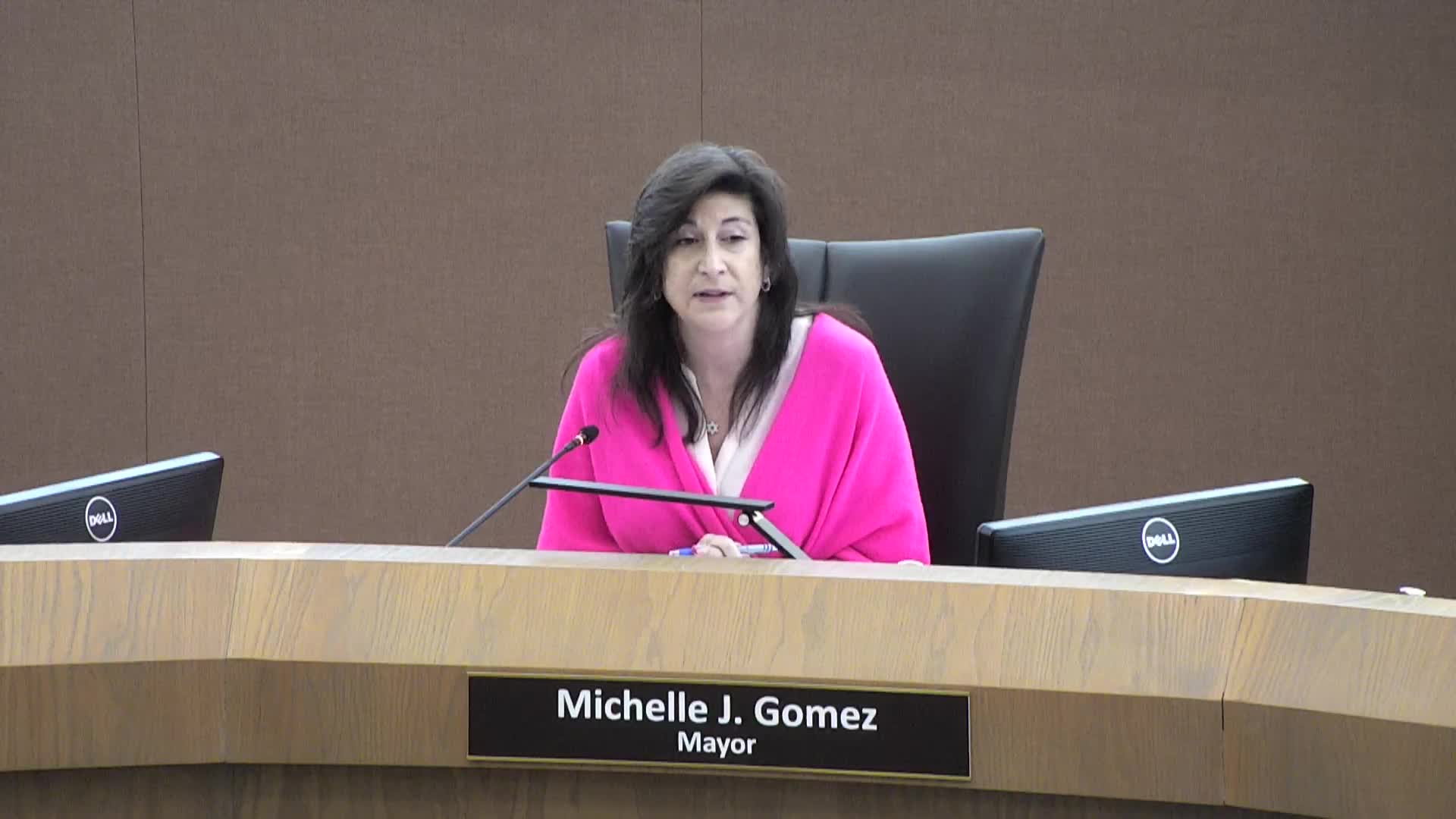Tamarac approves five‑year police contract with Broward Sheriff after amendments on chief oversight and communication
Get AI-powered insights, summaries, and transcripts
Subscribe
Summary
After hours of debate and public comment, the Tamarac City Commission approved a five‑year police service agreement with the Broward Sheriff’s Office, adding language clarifying notice, communication protocols and a staff review plan; the final vote passed 4–1 after an earlier attempt failed.
The Tamarac City Commission approved a five‑year police services agreement with Broward Sheriff Gregory Tony on a 4–1 vote after heated debate over oversight, staffing and how the city would be notified of personnel changes.
The original motion failed earlier in the meeting but the commission returned to the item and approved the contract “as amended,” adding clearer language about communication and notice to city officials when BSO makes personnel changes affecting the district chief, and directing staff to continue work on related policy and reporting mechanisms.
What passed: The adopted agreement covers police services for Tamarac from Oct. 1, 2025, through Sept. 30, 2030, and preserves the overall structure of the BSO‑city contract while adding commitments to improve communication with city officials. The commission’s final roll call was: Commissioners Wright, Bolton, Daniel and Patterson — yes; Mayor Michelle J. Gomez — no. The previous, unamended motion had failed 3–2.
Main points of debate: Commissioners and city leaders repeatedly raised two issues: (1) who has a formal role in selecting or being notified about changes to the district chief assigned to Tamarac; and (2) the composition and duties of the city’s non‑sworn personnel in BSO’s staffing complement.
Commissioner Marlon Bolton pressed for a commission role in confirming a district chief or at least a clearer, charter‑level path to confirmation. BSO and the city attorney responded that selection and discipline of BSO deputies are governed by the sheriff’s employment authority, and that the city charter gives the city manager responsibility for department‑level appointments; they said equivalent protections can be achieved through clearer notice and internal city policy rather than by rewriting the sheriff’s standard contract language used in multiple municipalities.
Staffing questions: Commissioners and the major discussed the contract’s staffing complement. BSO staff said the contract contemplates 110 assigned personnel (92 sworn and 18 non‑sworn). Of the non‑sworn positions, about 15 are “service aids,” a legacy category that commissioners said merits review. Major Christopher de Giovanni and city leaders agreed to a 180‑day operational review and job‑task analysis to determine whether some service aids should be converted to sworn positions or reassigned to better meet patrol needs.
Funding and forfeiture dollars: BSO officials said certain seized‑asset and grant funds already held or authorized for the district have paid for equipment projects, including a recent license‑plate‑reader project and cameras; they cited about $550,000 in equipment costs for that program and said roughly $230,000 is in local forfeiture‑type funds available for approved uses.
Public safety and communication: Commissioner Patterson told the commission she had not been routinely briefed about a recent high‑profile incident in the city and said the commission must be able to answer residents’ questions about safety. BSO leadership said they are committed to timely, direct notification to the city manager and to working with the city to improve public‑information coordination; the amended language requires written notice to the city manager and sets up a process for manager‑level discussions before personnel changes affecting the district.
Consultant and legal views: The city’s public‑safety consultant, Larry Juriga, told commissioners the negotiated agreement represents “a very good contract” with commitments to increase officer visibility, traffic safety work and community engagement. The city attorney and manager said the charter and existing code already provide mechanisms for the city commission to direct the manager on appointment policy if the commission chooses to pursue changes to human‑resources confirmation practices.
Action and next steps: The commission approved the contract as amended and directed the manager and BSO to implement the enhanced communications protocols, begin the 180‑day staffing review, and report back with recommended staffing and any required contract or charter changes. Officials said they would continue to refine notice wording and bring any proposed contract edits back to the commission for final ratification.
Ending: The vote completes a months‑long negotiation. Supporters said the contract stabilizes patrol services and funds technology and traffic‑safety tools; opponents said the city should have stronger formal roles in selecting or ratifying the district chief. The mayor was the lone dissenting vote on the final approval.
